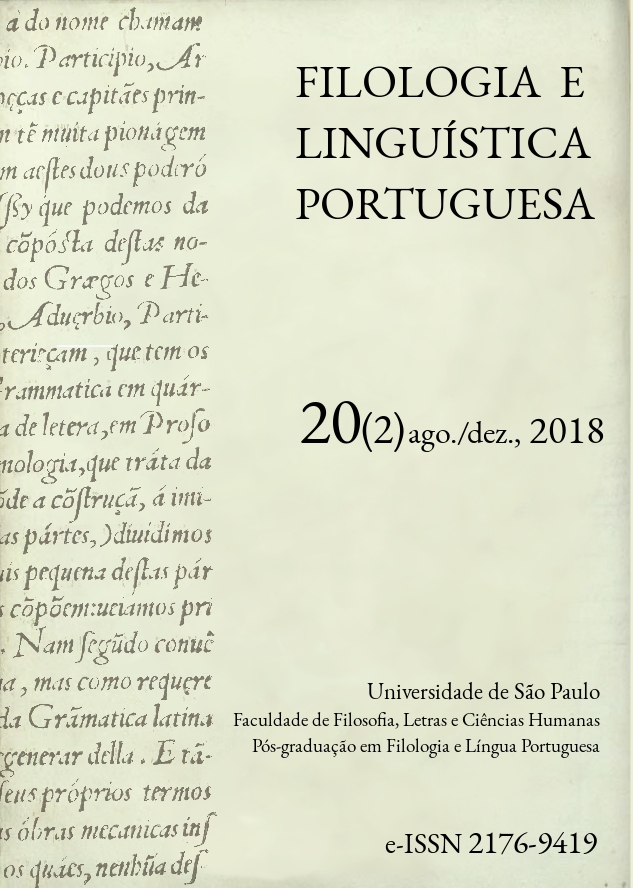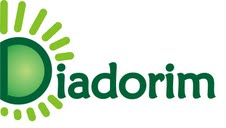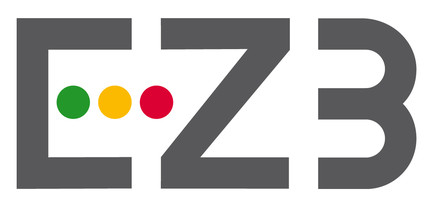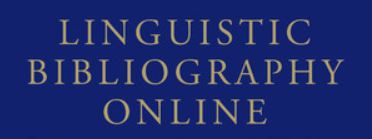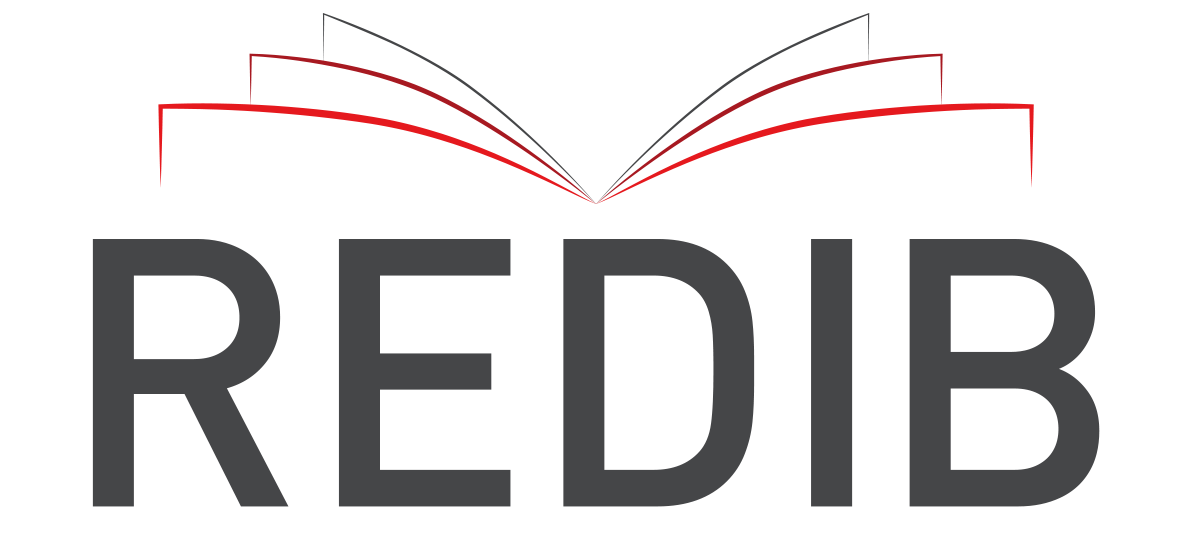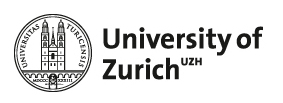Papiamentu: a Spanish-base creole?
DOI:
https://doi.org/10.11606/issn.2176-9419.v20i2p293-309Keywords:
Papiamentu, Spanish origin, Role of natives, Continuous use of Spanish, Lexical and functional itemsAbstract
As the origin of Papiamentu is still a controversial subject among scholars, the aim of this article is to discuss a possible Spanish genesis of this Caribbean language (see Maduro, 1965; Rona, 1970; Munteanu, 1999, among others), contributing to discussions about its origin and its lexifier language. From the analysis, it is observed that the hypothesis of a Spanish Creole has several controversial points. In the more general context, there are no Spanish-based creoles in the Atlantic region because of the very characteristics of its colonization. Specifically as regards Papiamentu, there are also questionable points, such as the role attributed to natives and the continuity in the use of Spanish on the Caribbean Island. In the linguistic context, the items of Portuguese origin are part of the functional lexicon and are quite old in the language, which shows that it is not possible to attribute a minor importance to the influence of Portuguese. In summary, it is concluded that, although Spanish has influenced the formation of Papiamentu (defending an Portuguese-Spanish basis for the language), it is not possible to consider that this Caribbean language derived from Spanish. Other elements are necessary to explain the genesis and development of this language.
Downloads
References
Bandeira M, Araujo GA, Freitas S. A presença do espanhol no papiamentu: uma análise sincrônica. Todas as letras Z. 2015;17(2):163-175.
Birmingham Jr JC. The Papiamentu language of Curaçao [tese]. Charlottesville: Faculdade de Filosofia, Universidade da Virgínia; 1970.
Central Bureau of Statistics (CBS). First results census 2011 – Curaçao [internet]. 2012. [citado 14 out. 2012]. Disponível em: http://www.cbs.cw/cbs/themes/Census%202001/Publications/Census% 202001-2012102 3105057.pdf.
Domingos R. Attitude and language choice in a multilingual society: urban Curaçao. Claremont: Universidade de Claremont; 1974.
Faraclas N, et al. Creoles and acts of identity: convergence and multiple voicing in the Atlantic Creoles. PAPIA. 2014;24(1):173-198.
Ferrol O. La cuestion del origen y de la formacion del papiamento. Curaçao: Universidad de las Antillas Neerlandesas; 1982.
Fouse GC. The story of Papiamentu: a study in slavery and language. Lanham/New York/Oxford: University Press of America; 2002.
Frederiks BT, Putman JJ. Woordenlijst der in de landstaal van Curaçao meest gebruikelijke woorden met Zamenspraken. Fac-símile. Bloemendaal/Curaçao: Stichting Libri Antilliani/Fundashon pa Planifikashon di Idioma; 2004[1859].
Freitas S. A origem do papiamentu: evidências para uma convergência de hipóteses. PAPIA. 2016;26(2):121-235.
Freitas S, Bandeira M, Araujo GA. A adaptação de palavras do português para o papiamentu. Filologia e Linguística Portuguesa. 2014;16(2):433-455.
Goodman M. The Portuguese element in the American creoles. In: Holm J, Michaelis S, editores. Contact languages. Critical concepts in language studies. Vol. 3. Londres e Nova York: Routledge; 1996[1987]. p. 538-586.
Grant AP. The Portuguese elements in Papiamentu. In: Faraclas N, Severing R, Weijer C, editores. Linguistic studies on Papiamentu. Curaçao: Fundashon pa Planifikashon di Idioma; 2008a. p. 47-71.
Grant AP. A constructivist approach to the early history of Papiamentu. In: Faraclas N, Severing R, Weijer C, editores. Linguistic studies on Papiamentu. Curaçao: Fundashon pa Planifikashon di Idioma; 2008b. p. 73-112.
Jacobs B. The Upper Guinea origins of Papiamentu: linguistic and historical evidence. Diachronica. 2009a;26(3):319-379.
Jacobs B. The origins of Old Portuguese features in Papiamentu. In: Faraclas N, et al., editores. Leeward voices: fresh perspectives on Papiamentu and the literatures and cultures of the ABC Islands. Vol. 1. Curaçao: FPI/UNA; 2009b. p. 11-38.
Jacobs B. Origins of a creole: the history of Papiamentu and its African ties. Coleção Language contact and bilingualism. New York: Walter de Gruyter; 2012a.
Jacobs B. Linguistic evidence and historiography: the selection of slaves on Curaçao, 1650-1700. Revista de Crioulos de Base Lexical Portuguesa e Espanhola. 2012b;3:1-19.
Kouwenberg S & Muysken P. Papiamento. In: Arends J, Muysken P, Smith N, editores. Pidgins and creoles: an introduction. Amsterdã/Filadélfia: John Benjamins Publishing Company; 1995. p. 205-218.
Lenz R. El Papiamentu: la lengua criolla de Curazao. Santiago de Chile: Balcells & Cia; 1928.
Lipski JM. Spanish-based Creoles in the Caribbean. In: Kouwenberg S, Singler JV, editores. The handbook of pidgin and creole studies. Oxford: Wiley-Blackwell; 2008. p. 543-564.
Lucchesi D, Baxter A. A transmissão linguística irregular. In: Lucchesi D, Baxter A, Ribeiro I, organizadores. O português afro-brasileiro. Salvador: EDUFBA; 2009. p. 101-124.
Luna MVB, Faraclas N. Indigenous peoples and the emergence of the Caribbean Creoles. In: Faraclas N, editor. Agency and the emergence of Creole languages: the role of women, renegades, and people of African and indigenous descent in the emergence of the colonial era Creoles. Amsterdã/Filadélfia: John Benjamins Publishing Company; 2012. p. 81-110.
Maduro AJ. Papiamentu: origen i formacion. Willemstad: Edição do autor; 1965.
Maduro AJ. Procedencia di palabranan papiamentu i otro anotacionnan I (Letter A te M). Willemstad: Edição do autor; 1966a.
Maduro AJ. Procedencia di palabranan papiamentu i otro anotacionnan II (Letter N te ZJ). Willemstad: Edição do autor; 1966b.
Maduro AJ. Vocabulario pa un estudio comparativo. In: Maduro AJ. Procedencia di palabranan papiamentu i otro anotacionnan II (Letter N te ZJ). Willemstad: Edição do autor; 1966c. p. 59-72.
Martinus F. The kiss of a slave: Papiamentu’s West African connections. [tese]. Amsterdã: Universidade de Amsterdã; 1996.
Martinus F. Djuku kaiman ‘sklabitut a kaba’: orígen i evolushon di papiamentu ku guene. Curaçao: Kas di Kultura Kòrsou; 2007.
Matras Y. Language contact. Cambridge: Cambridge University Press; 2009. p. 146-165.
Maurer P. El papiamentu de Curazao. In: Perl M, Schwegler A, editores. América negra: panorámica actual de los estudios lingüísticos sobre variedades hispanas, portuguesas y criollas. Frankfurt/Madrid: Vervuert/Editora Iberoamericana; 1998. p. 139-217.
Mcworther J. The scarcity of Spanish-based creoles explained. Language in society. 1995; 24:213-244.
Mufwene SS. The founder principle in the development of creoles. In: Mufwene SS. Ecology of language evolution. Cambridge: Cambridge University Press; 2001. p. 25-80.
Munteanu D. El papiamentu, lengua criolla hispánica. Madrid: Gredos; 1996.
Paradis C. The inadequacy of filters and faithfulness in loanword adaptation. In: Durand J, Las B, organizadores. Current trends in phonology. Salford: University of Salford Publications; 1996.
Quint N. Le CapVerdien: origines et devenir d’une langue métisse. Paris: L’Harmattan; 2000.
Rona JP. Elementos españoles y elementos portugueses en el papiamento. Programa de Promé Simposyo Internashonal di Papyamentu. Curaçao, Willemstad; 1970.
Smith N. Pernambuco to Surinam 1654-65? The Jewish slave controversy. In: Huber M, Parkvall M, editores. Spreading the word: the issue of diffusion among Atlantic Creoles. London: University of Westminster Press; 1999. p. 251-298.
Thomason SG, Kaufman T. Language contact, creolization, and genetic linguistics. Berkeley/Los Angeles/Oxford: University of California Press; 1988.
Van Buurt G. Caquetío Indians on Curaçao during colonial times and Caquetío words in the Papiamentu language. In: Faraclas N, et al., editores. Leeward voices: fresh perspectives on Papiamentu and the literatures and cultures of the ABC Islands. Vol. 1. Curaçao: FPI/UNA; 2009. p. 57-82.
Downloads
Published
Issue
Section
License
Copyright is transferred to the journal for the online publication, with free access, and for the printing in paper documents. Copyright may be preserved for authors who wish to republish their work in collections.


